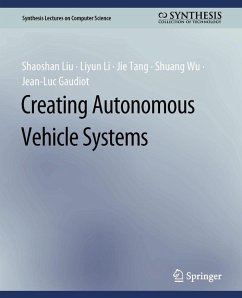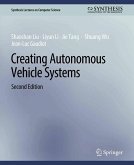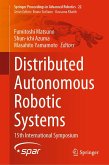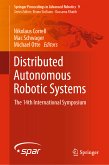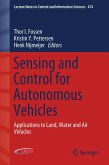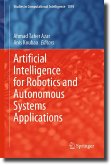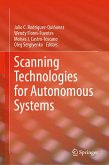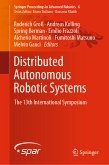This book is the first technical overview of autonomous vehicles written for a general computing and engineering audience. The authors share their practical experiences of creating autonomous vehicle systems. These systems are complex, consisting of three major subsystems: (1) algorithms for localization, perception, and planning and control; (2) client systems, such as the robotics operating system and hardware platform; and (3) the cloud platform, which includes data storage, simulation, high-definition (HD) mapping, and deep learning model training. The algorithm subsystem extracts meaningful information from sensor raw data to understand its environment and make decisions about its actions. The client subsystem integrates these algorithms to meet real-time and reliability requirements. The cloud platform provides offline computing and storage capabilities for autonomous vehicles. Using the cloud platform, we are able to test new algorithms and update the HD map-plus, train better recognition, tracking, and decision models. This book consists of nine chapters. Chapter 1 provides an overview of autonomous vehicle systems; Chapter 2 focuses on localization technologies; Chapter 3 discusses traditional techniques used for perception; Chapter 4 discusses deep learning based techniques for perception; Chapter 5 introduces the planning and control sub-system, especially prediction and routing technologies; Chapter 6 focuses on motion planning and feedback control of the planning and control subsystem; Chapter 7 introduces reinforcement learning-based planning and control; Chapter 8 delves into the details of client systems design; and Chapter 9 provides the details of cloud platforms for autonomous driving. This book should be useful to students, researchers, and practitioners alike. Whether you are an undergraduate or a graduate student interested in autonomous driving, you will find herein a comprehensive overview of the whole autonomous vehicle technology stack. If you are an autonomous driving practitioner, the many practical techniques introduced in this book will be of interest to you. Researchers will also find plenty of references for an effective, deeper exploration of the various technologies.
Dieser Download kann aus rechtlichen Gründen nur mit Rechnungsadresse in A, B, BG, CY, CZ, D, DK, EW, E, FIN, F, GR, HR, H, IRL, I, LT, L, LR, M, NL, PL, P, R, S, SLO, SK ausgeliefert werden.

